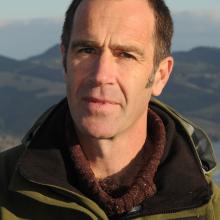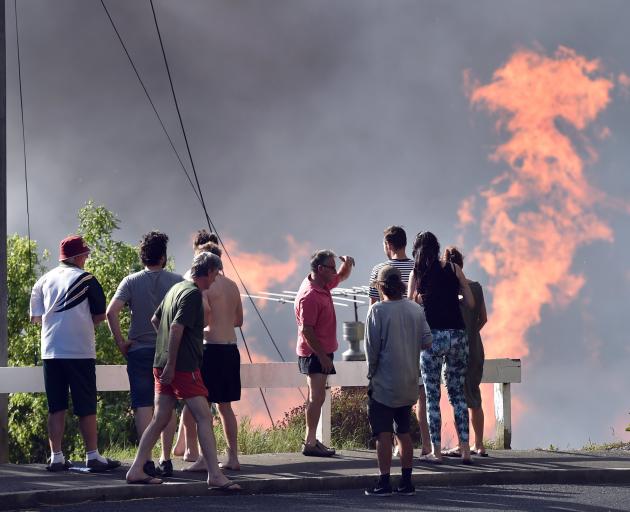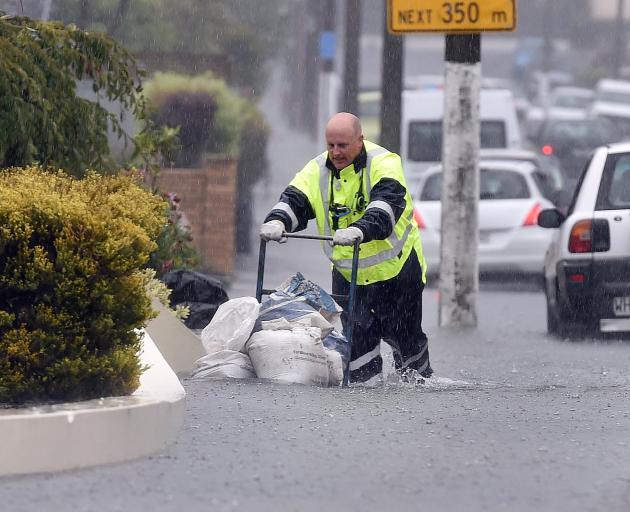

For the past few months in New Zealand it has been a bitter harvest of drought, fire, flood, and cyclones, along with slips, more floods and storm surges. The science is clear that this harvest is the result of the fossil fuels we burn to power our carbon-intensive lifestyles. Indeed, scientists are ever more definitive that particular weather events are driven by accumulated greenhouse gas emissions in the atmosphere.
What do we do when the harvest is over? In the home garden, harvesting the fruit and vegetables is just the start. Next comes bottling or freezing or drying, and putting aside for the leaner months. Preparation for what is to come, in other words. It is hard but important work that helps lower household bills and provides nutritious home grown food.
Of course, climate impacts are not really seasonal, and the harvest of natural disasters will continue as the planet continues to heat up. But once we've accepted this state of affairs, it is time to take stock, then roll up our sleeves and get on with things.
The equivalent of preparing for the leaner months after a harvest of fire and flood is planning and preparing for adaptation so that in the future we are not caught short. If we are constantly playing catch up and simply responding, inadequately, to increasingly problematic weather events, we'll exhaust ourselves and our ability to cope.

Anyone who follows the news knows how important it is that we move from haphazard reactive responses to natural disasters and move to a national adaptation strategy; put a proper plan in place. Examples of where we have failed to do this abound but the experience of Granity on the West Coast provides a particularly vivid illustration. There, rising seas and tidal surges are quickly undermining the lives of people, many of whom have insufficient resources to escape.
Their story is captured in an interactive article, "Eaten Alive", available online.
Meanwhile, in Dunedin our city council has resolved that Dunedin will be "carbon neutral" by 2050. It has also made a commitment to ensure that the people of South Dunedin are not worse off than they are now.
These are ambitious commitments and will only be achieved when the wider Dunedin community also makes the same commitment and together we start working on a collective city-focused approach. Adaptation is not about one organisation solving it all for us.
In the immediate, what this means is that we will have to continue to deal with local impacts on a case-by-case basis while at the same time adopting adaptive strategies and planning. It is going to be hard for all of us, with changing property values, expanding flood hazard zones, increased uncertainty over asset vulnerability and decisions on how much to invest and what to invest it on. Our best way through this is to embrace the challenge, and to stand up proudly as a city, and pull together to provide an example for the rest of New Zealand on how we can work through this and how we can adapt and ensure that no-one is left behind.

My hope is the drought, fire, and flooding, all within the space of three days in late January and early February this year has not only caused anxiety and stress, but has focused minds and given us reason to grasp the opportunity. Now that central government is showing leadership, and providing guidance on risk and developing mechanisms to assist adaptation, we can declare our willingness, as a city, to work together on a city-wide adaptive response.
Yes, we have many challenges in our built environment: houses in flood prone areas, infrastructure needs to be balanced against climate impacts. But if we embrace the challenge ourselves, rather than expect someone to fix it for us, together we may be able to reduce poverty, improve health, strengthen community and deliver greater social wellbeing while taking responsible climate action. And in doing so we can create a blueprint for the rest of New Zealand, because the need is great, and no one has accepted the challenge yet.
Dunedin can do things differently. We can learn from our harvest of fire and flood and prepare for the future through adaptive pathways planning. We'll have to balance between the immediate and long-term needs, and commit to act even in the face of uncertainty. Finally, we will need to step up on the national stage as a city willing to lead the way on climate change adaptation in New Zealand. And underlying our action must be a commitment to meet the needs of all, within the means of the planet.
How to get started
- Consultation on Dunedin's long term plan is beginning already. The DCC is seeking preliminary views prior to the formal consultation process and you can participate here: www.dunedin.govt.nz/your-council/10-year-plan.
- The next climate impacts adaptation public workshop is on Friday, March 16 in South Dunedin. You can find more information here: http://climatesafehouse.nz/event
- There are many community organisations you can join to be involved in climate solutions. These include: the Blueskin Resilient Communities Trust (www.brct.org.nz); Wise Response (www.wiseresponse.org.nz); Our Climate Declaration (www.ourclimatedeclaration.org.nz); Generation Zero (www.generationzero.org); Sustainable Dunedin City (www.sustainabledunedincity.org.nz); Forest and Bird Dunedin (www.forestandbird.org.nz/branches/dunedin): Seniors Climate Action Network.
- Write to your MP and to the Minister for Climate Change, James Shaw.
- Read the story of Granity: https://interactives.stuff.co.nz/2017/04/eaten-alive/
Scott Willis is the project manager of Blueskin Energy Ltd. Each week in this column, one of a panel of writers addresses issues of sustainability.











